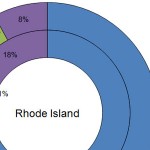The Surveillance State Is Creepy
Whether Sir Arthur Conan Doyle was being fair (or how unfair he was being) to Mormons in his first Sherlock Holmes story, A Study in Scarlet, I don’t know. The story did, however, reinforce a cultural aversion to being spied upon by authorities, and we could definitely use a bit more reinforcement of that suspicion.
Doyle’s claim is that early-Utah-settlement Mormons had a sort of secret police to enforce adherence to the faith, and its reach extended well beyond just Salt Lake City. From the point of view of one convert to the faith (who converted rather than be left to die in the desert), the knowledge of this mysterious group was somewhat creepy, but livable… until he ran afoul of the Elders. His adopted daughter wanted to marry a man outside of the faith, and the preferred options of the authorities were not tolerable. Flight and murder followed.
And so it is throughout history. As long as the civic structure allows people a certain degree of comfort, and as long as the rules that put one at risk of being a target are clear, many people will simply accept that those with power take liberties against their freedom. The rules have a way of expanding, though, so it’s important for a free society to have a deep distrust of the mechanisms that can close in when they do.
When we learn that government agencies are developing extensive real-time road surveillance tools, it ought to worry us. (License plate tracking technology is one of the regular bills hiding in the mass of the General Assembly’s legislation, as if awaiting a moment to slip into law.) Sure, most of the uses of the system might seem unobjectionable, at first (although I find it abhorrent that the system was build for government property grabs):
The primary goal of the license-plate tracking program, run by the Drug Enforcement Administration, is to seize cars, cash and other assets to combat drug trafficking, according to one government document. But the database’s use has expanded to hunt for vehicles associated with numerous other potential crimes, from kidnappings to killings to rape suspects, say people familiar with the matter.
Increasing revelations about false accusations of rape give a direct example of how the dragnet can thicken, but the concern is not necessarily direct. We can be certain that, over time, the list of items for which the system is used will expand, making it less and less possible for us all blithely to assume that we will never run afoul of the authorities.


